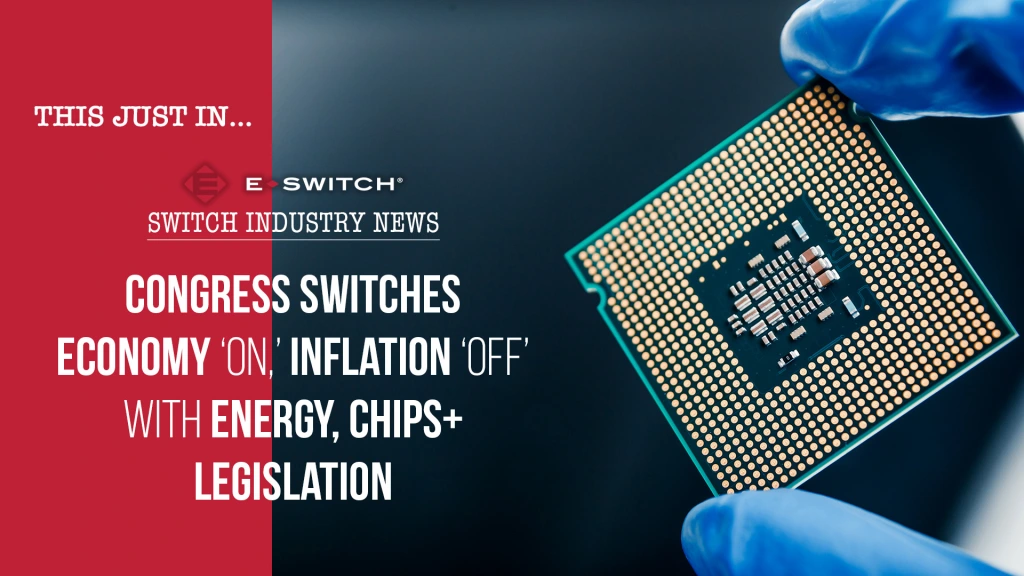This week Congress agreed to pass two bills that will shape the future of the United States’ economy for decades to come. The CHIPS for America Act will attempt to address the massive semiconductor shortage that has slowed production of everything from cars to computers. Senate Democrats also agreed to pass sweeping legislation to address energy, health care, and taxes.
The impact on the stock market was immediate. You might have noticed solar and renewable energy stock prices skyrocket on Thursday. Hydrogen fuel cell manufacturer Plug Power saw its stock price increase 25 percent. Residential solar energy service provider Sunnova Energy enjoyed a 27-percent jump. Another residential solar energy system provider, Sunrun, saw its stock price increase by 30 percent. Both the Dow Jones Industrial Average and S&P 500 were pushed higher on Thursday as a result.
The COVID-19 pandemic and the global inflation that resulted made it painfully clear that America’s reliance on Asia for many of its technological products could not continue. Currently, U.S. semiconductor manufacturing capacity is 12 percent of global capacity, whereas in 1990, the U.S. held a majority of the semiconductor market share at 37 percent. COVID-19 broke more than bodies; it broke supply chains. These bills are meant to, in part, unchain America from those supply chains.
President Joe Biden gave a boost to the residential and commercial solar industry with executive orders back in June, but executive orders can only do so much. In this case, the executive orders only authorized the Defense Production Act to boost production of solar and renewable energy hardware domestically and suspended tariffs on such hardware for two years. This should help address the lack of EV charging stations in rural America, but that’s not the only thing holding back EV production and adoption. The lack of semiconductor supply has also stalled EV production despite increased demand resulting from high fuel prices.
With the CHIPS for America Act, $52 billion in federal funding will be provided for domestic production of semiconductors, mostly through tax credits for companies who meet certain criteria. The agreement on energy, health care, and taxes would invest $369 billion into energy and climate change programs, with a goal of reducing carbon emissions 40 percent by 2030. Tax credits for the purchase of both new and used electric vehicles will continue at their current levels: up to $4,000 for a used EV and up to $7,500 for a new EV. However, the income threshold for people who can use the tax credits will be lower, a key demand of Senator Joe Manchin of West Virginia, who previously opposed the legislation.
What does this all mean for the switch industry? Well, with domestic vehicle manufacturers already increasing production of EVs, this legislation paired with the previous executive orders should supercharge the speed at which EVs are produced and adopted. And electric vehicles feature a massive number of electromechanical switches, from the dashboard to, now, the door handle.
Virtually anything with a semiconductor also has a switch or two associated with it, so all of this is great news for the switch industry. While it may be years before the semiconductor legislation has an actual impact on domestic production, the passage of the climate change legislation will spur production of EVs immediately by making it less expensive for EV manufacturers to borrow funds despite increasing interest rates. The immediate impact on stock prices has already increased these companies’ valuations, which allows for borrowing more money to invest in research, development, and production.
